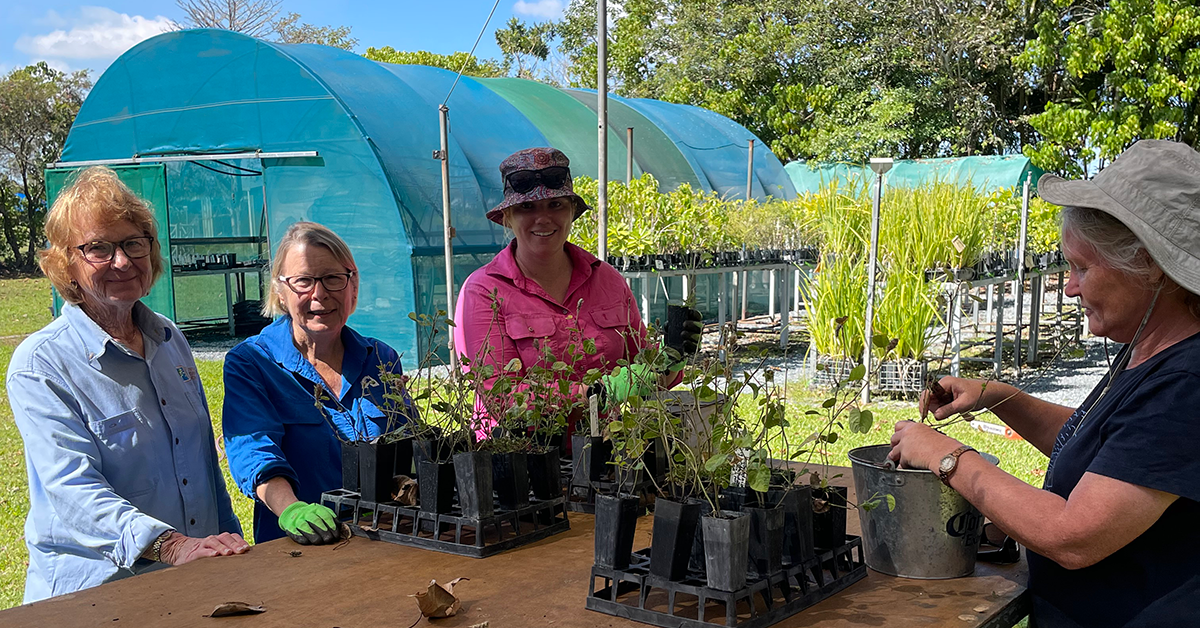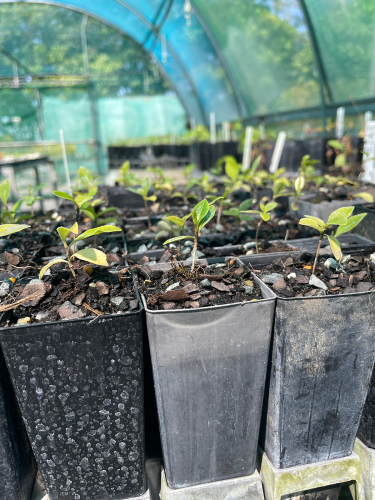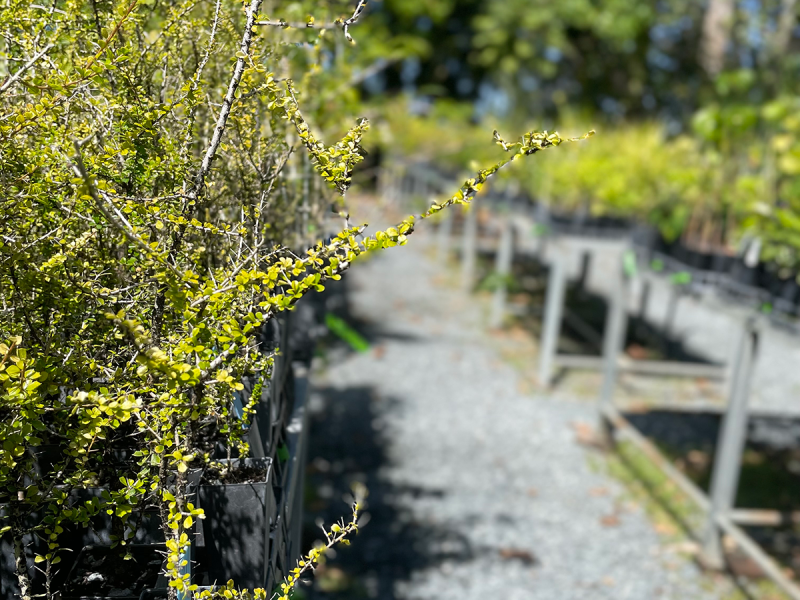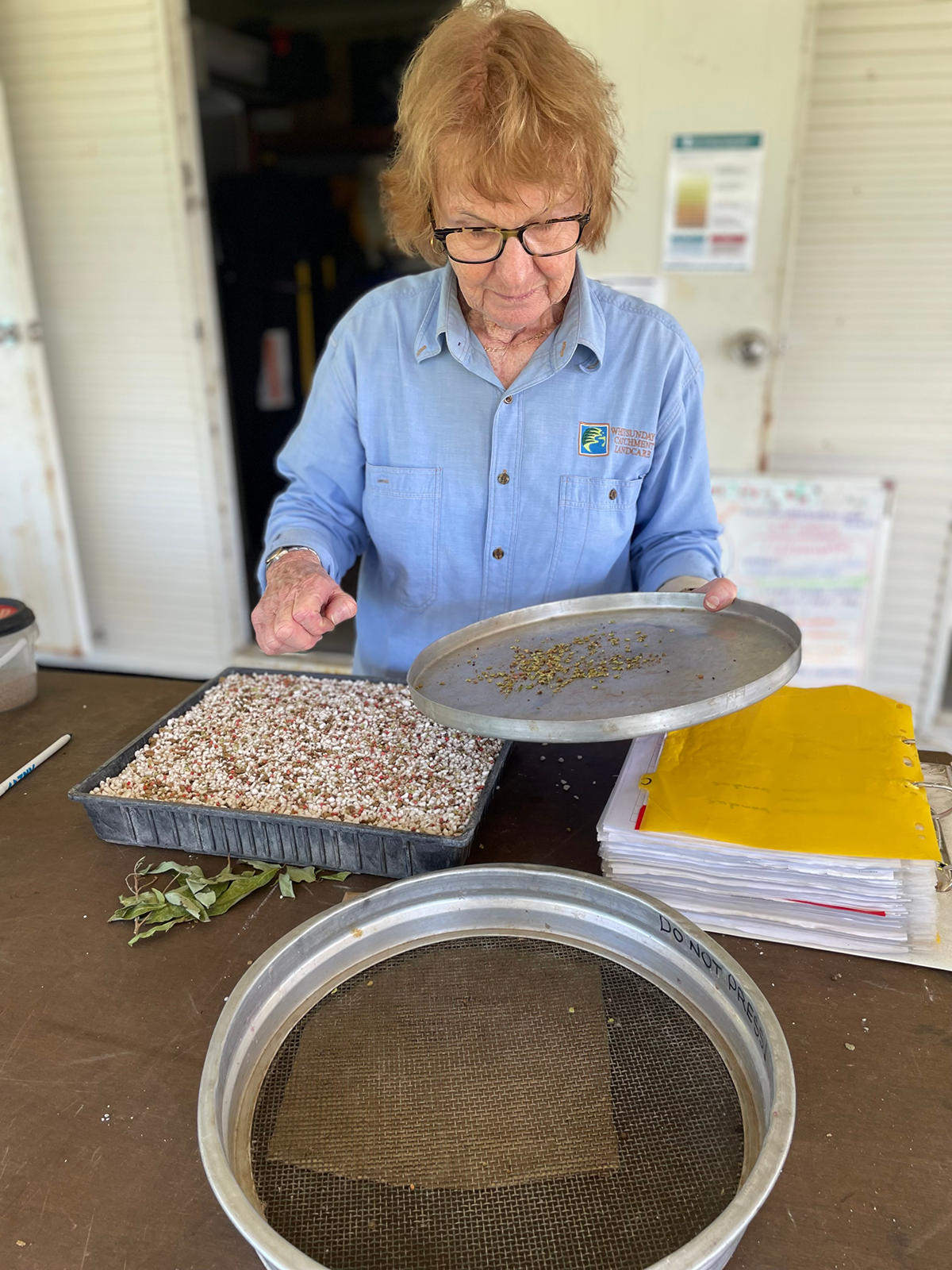Native plants grown to save water, improve biodiversity and reduce erosion
Landcare groups play a vital role in rejuvenating the landscape, one plant at a time. We caught up with Whitsunday Catchment Landcare to see what’s involved.

Huddled around a table, landcare volunteers are busy sifting seeds and writing out labels. They are getting ready to prepare a dozen seed trays that will eventually sprout into hundreds of plants destined for a local habitat restoration site, or a keen gardeners’ backyard.
Every year, thousands of native plants are propagated and nurtured until they are ready for sale or planting, all from seed collected in the local area. The plants grown at Whitsunday Catchment Landcare are not just native Australian plants, but species that have been verified as being indigenous to the Whitsunday area – extending from Midge Point in the south, Bowen in the north and out west to Collinsville.
They have a wide collection of species for coastal, rainforest and riparian zones, open woodlands and everything in between. As well the obvious tasks you’d expect at a nursery such as repotting, watering and weeding – the volunteers are involved in auditing, labelling and record keeping, all the while learning the different names and natures of the plants.
They also prepare the seeds for planting by cracking or soaking them to replicate the natural germination process they might go through in the wild. Once the plants have sprouted and reach various stages of growth, volunteers can rack up countless kilometres moving plants around the nursery depending on the different sun, water and protection needs of each plant type.


DID YOU KNOW?
Trees play an important part in protecting our waterways, particularly along streambanks where roots provide stability to help prevent erosion. Their leaves provide shade to cool our environment and planting trees native to your local area can help reduce water usage as they generally require less irrigation than introduced species.
Taking local action
Beth McDowall, a retired school teacher, is just one of the volunteers at the centre. She got involved with WCL after teaching geography and environmental sciences, but also as a way of growing her skills as a keen gardener.
“One of the areas that we always studied was the environment and we looked at what could be done at a global level, national level, regional level and what actions you could personally take. One of those actions was to join your local landcare group,” she said.
“It’s a really good group to get involved with. More people should do it, especially if you enjoy gardening – you would love this.”

Find a landcare nursery near you
AIRLIE BEACH & PROSERPINE
Whitsunday Catchment Landcare Nursery
33 Kelsey Creek Road, Proserpine
Volunteer mornings every Tuesday and Thursday 9am to 12pm.
Volunteers need to register at whitsundaylandcare.org.au.
Open to the public Tuesday and Thursday mornings, plus the first Saturday of each month, 9am to 12noon.
MACKAY
Mackay Natural Environment Centre & Pioneer Catchment Landcare
6 Swayne Street, North Mackay
Welcomes volunteers Tuesdays and Thursdays.
Holds Nursery Open Days throughout the year where ratepayers can receive up to four free native plants a year. Dates are listed on the Mackay Regional Council website or updated via their Facebook page.
SARINA
Sarina Landcare Catchment Management Association Inc – Community Nursery
Welcomes volunteers every Wednesday 9am to 12pm.
Pre-order plants online at sarinalandcare.org.au or contact 4956 1388 to book an appointment.


